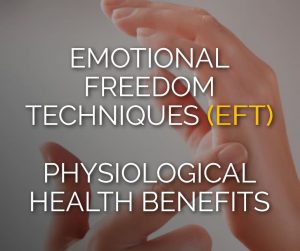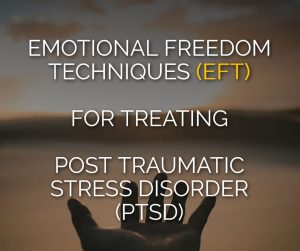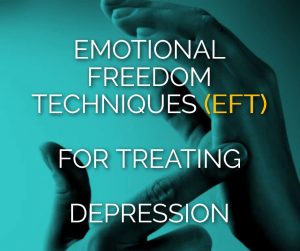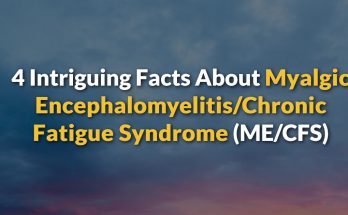Welcome to EFT, where tapping your way to emotional freedom can bring about transformative health benefits.
Emotional Freedom Techniques, or EFT, is a practice that combines elements of ancient Eastern acupressure with modern psychology.
While it may seem unconventional, the results and evidence are beginning to speak for themselves.
EFT has been proven effective in reducing symptoms of anxiety, depression, and post-traumatic stress disorder, along with a wide range of other psychological issues such as phobias.
In this blog article, we will delve into the lesser-known but remarkable health benefits of EFT.
How Does EFT (Emotional Freedom Techniques) Work?
Emotional Freedom Techniques, a form of psychological acupressure, requires tapping specific points on the body while focusing on an emotional issue.
Though seemingly simple, the underlying principles of EFT are deeply rooted in ancient Eastern practices like acupuncture.
By harmonizing the body’s subtle energy system, EFT helps release emotional blockages, paving the way for profound healing.
Clinical EFT is described as an evidence-based practice combining elements of cognitive and exposure therapies with the manual stimulation of acupuncture points (acupoints).
Numerous dismantling studies have confirmed that the “tapping” or acupuncture component of EFT is an active essential ingredient and not due to placebo effect.
A recent meta-analysis of 6 dismantling or partial dismantling studies indicates that the acupuncture component is an essential ingredient, and not due to placebo, nonspecific effects of any therapeutic method, or non-acupressure components, in the rapid outcomes shown in EFT clinical trials. – [1]
Emotional Freedom Techniques (EFT) Physiological Health Benefits

Whilst EFT has long been associated with improved mental health, there is a growing body of evidence suggesting that Emotional Freedom Techniques (EFT) can have numerous biological health benefits.
Treatment is associated with measurable biological effects in the dimensions of gene expression, brain synchrony, hormonal synthesis, and a wide range of biomarkers. – [2]
The physiological mechanisms of action of Clinical EFT have been elucidated in the dimensions of stress hormone reduction, gene expression, brain regulation, and biomarkers such as heart rate and blood pressure. – [3]
One of the most exciting physiological benefits of EFT may lie in its epigenetic effects and ability to influence gene expression beneficially.
The epigenetic effects of EFT include upregulation of immunity genes and downregulation of inflammation genes. – [4]
1. Emotional Freedom Techniques & Post Traumatic Stress Disorder (PTSD)

Emotional Freedom Techniques (EFT) have shown incredible promise in treating and alleviating the symptoms of PTSD, in a wide variety of different patient groups.
Post-Traumatic Stress Disorder (PTSD) affects millions of people worldwide.
Conventional treatment methods such as pharmaceutical medications can be burdened with serious side effects and patient intolerance.
EFT offers a non-invasive, non-medication approach to supporting psychological well-being, whilst also having the benefit of being able to be practised as a self-help technique anywhere.
The latest updated systematic review and meta-analysis has concluded:
Numerous randomized controlled trials and outcome studies, as well as a meta-analysis, have demonstrated Clinical EFT to be an effective evidence-based treatment for PTSD.
The current updated review demonstrates that Clinical EFT produces greater reduction in PTSD symptoms than wait-list or “treatment-as-usual” control groups, symptom reductions similar to other evidence-based therapies, and large treatment effects.
The APA Division 12 Task Force for Empirically Validated Therapies published a set of standards by which to evaluate therapies in the late 1990s.
Earlier reviews (Feinstein, 2012; Church, 2013a; Church et al., 2022) found that Clinical EFT meets these standards. – [3]
2. Emotional Freedom Techniques (EFT) & Depression

Emotional Freedom Techniques represent an exciting frontier in the battle against depression.
Depression often traps us in a cycle of negative thinking patterns. EFT helps to interrupt and rewire these harmful neural pathways, allowing you to break free from the repetitive loop of pessimism.
By combining tapping with positive affirmations and intentional focus, you can gradually reprogram your mind to embrace more positive thought patterns.
Many individuals grappling with depression have also experienced various forms of emotional trauma. EFT can serve as a potent tool for releasing and healing these emotional wounds.
High levels of stress hormone, cortisol dysregulation and hypercortisolemia are commonly observed in severely depressed patients.
Emotional freedom techniques may aid stress hormone reduction, promoting a better response to stress overall.
A systematic review and meta-analysis published 2016 evaluated Randomized and Nonrandomized Trials of Clinical Emotional Freedom Techniques (EFT) for the Treatment of Depression.
The results show that Clinical EFT were highly effective in reducing depressive symptoms in a variety of populations and settings.
EFT were equal or superior to treatment as usual (TAU) and other active treatment controls.
The posttest effect size for EFT (d = 1.31) was larger than that measured in meta-analyses of antidepressant drug trials and psychotherapy studies.
EFT produced large treatment effects whether delivered in group or individual format, and participants maintained their gains over time.
This meta-analysis extends the existing literature through facilitation of a better understanding of the variability and clinical significance of depression improvement subsequent to EFT treatment. – [5]
References
[1] Clinical EFT (Emotional Freedom Techniques) Improves Multiple Physiological Markers of Health
The information in this article has not been evaluated by the FDA and should not be used to diagnose, cure or treat any disease, implied or otherwise.
Always consult with a qualified healthcare professional before making any significant dietary or lifestyle changes including supplements and herbs.



